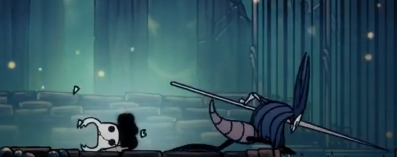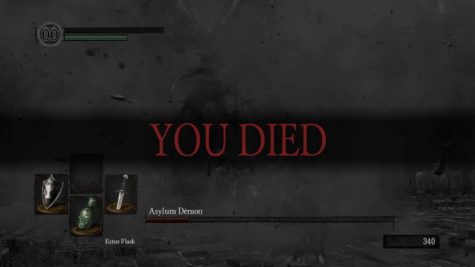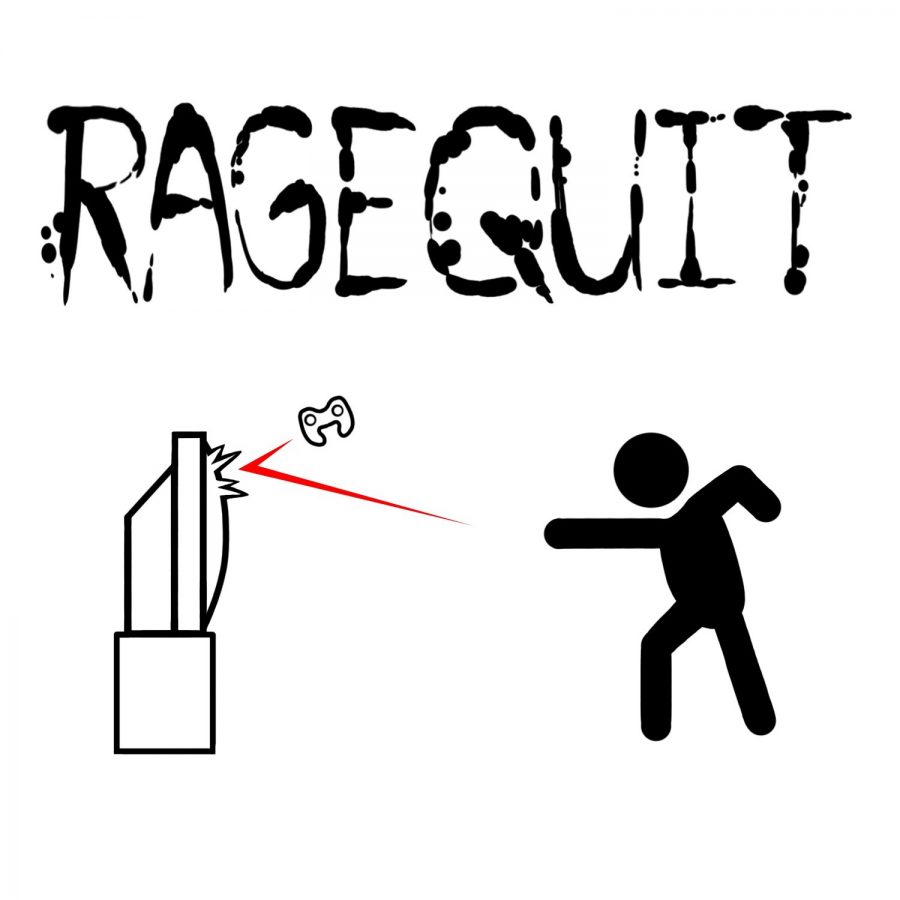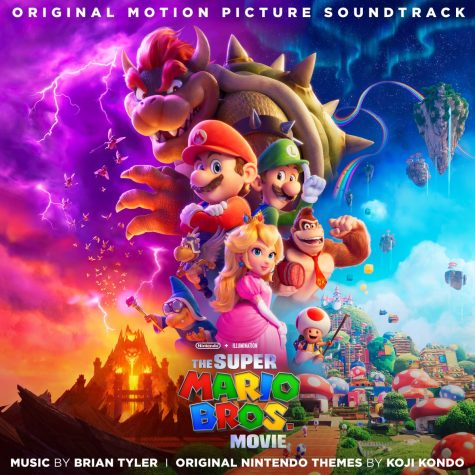Why You Rage: Rage Quitting Video Games
Imagine this: you had gone to the store and had bought a new game that had wonderful reviews. In your excitement to play, you had forgotten what some reviewers had said about it – that it was the hardest game they’ve ever played. Ten minutes later, you have finished the tutorial and are on your way to completing the story. Sure, it’s a little confusing, with no visual map or waypoints, but you slowly find your way and continue. Another 30 minutes pass, and you are stuck. You die, respawn, and die in the same spot as before. Five minutes of this go by, and eventually, you throw your controller across the room, smash your console, and huddle up into a corner and cry, all while people around you complain about the noise. Now, this is not a realistic scenario, and Dark Souls and Hollow Knight may not be the ‘hardest games in existence’, but there is no doubt that they are rather difficult for most players. These games are infamous for being difficult to beat and for making players ‘rage quit’, the act of quitting a game and throwing a tantrum. Now, why does this happen? Is it because of their personalities? Is it because of dopamine? What causes this strange phenomenon? My theory is a combination of anxiety, dopamine, a personal play-style preference, and due to conditioning from the game itself (which almost goes hand in hand with anxiety).
 Now, you may be asking yourself, what is dopamine? “Dopamine is a type of neurotransmitter,” an article from WebMD states. “[It is used] to send messages between nerve cells.” Dopamine is also used in a ’reward center’ in your brain. “Under normal conditions, the circuit controls an individual’s responses to natural rewards, such as food, and social interactions,” Icahn School of Medicine elaborates. It’s also the reason addiction is created; why adrenaline junkies and drug addicts are so addicted to their respective stimulants. When you do something that gives you dopamine, your brain memorizes and recognizes all events that occurred so that you can continue to get that rush, and your brain will urge you to continue said actions. Eventually, you start losing neural pathways that transport dopamine into your rewards center, causing you to have to partake in more of the stimulant to get the same rush as before. This will eventually become what is known as an addiction. Many video games utilize this by making their games easy at first and then ramping up the difficulty as you progress in the game. Mobile games are often guilty of this. They make their tutorials and first dozen levels easy, and then make the rest of the game significantly harder. They even limit the number of times you can try a level by using hearts that get depleted every single time you fail, but you’re so addicted to that dopamine rush that you’ll pay for more hearts and power-ups. That’s where Dark Souls differs… kind of. Dark Souls teaches you the basics at an ‘easier’ level, but if you’re not careful, your first death can be as quick as 5-10 minutes into the game. At the beginning of the game, you are tasked with escaping an undead prison, and you will reach a staircase where you’ll receive a key to go further up. At the base of the second flight of stairs, an enemy will push down a boulder that will instantly kill you. You can dodge if you’re expecting it, but that’s the key phrase: “if you are expecting it”. If you have never played the game, or seen a person play it, then you would never know the boulder was there and it would kill you. Your first death would not be because you were fighting a boss, but because you were careless. Now, this might not be such a big deal. Sure you may have died from a boulder but you can continue onwards. But that’s another problem. While you may have opened up a shortcut, odds are you didn’t. And unless you do, you have to respawn a good minute away from where you died. Having to fight enemies all over again to regain your spot. This is irritating because gaming becomes a slog, more of a chore than exciting and fun. Thus you stop playing, you’re angry, you keep dying and you aren’t happy anymore because of what you keep having to do.
Now, you may be asking yourself, what is dopamine? “Dopamine is a type of neurotransmitter,” an article from WebMD states. “[It is used] to send messages between nerve cells.” Dopamine is also used in a ’reward center’ in your brain. “Under normal conditions, the circuit controls an individual’s responses to natural rewards, such as food, and social interactions,” Icahn School of Medicine elaborates. It’s also the reason addiction is created; why adrenaline junkies and drug addicts are so addicted to their respective stimulants. When you do something that gives you dopamine, your brain memorizes and recognizes all events that occurred so that you can continue to get that rush, and your brain will urge you to continue said actions. Eventually, you start losing neural pathways that transport dopamine into your rewards center, causing you to have to partake in more of the stimulant to get the same rush as before. This will eventually become what is known as an addiction. Many video games utilize this by making their games easy at first and then ramping up the difficulty as you progress in the game. Mobile games are often guilty of this. They make their tutorials and first dozen levels easy, and then make the rest of the game significantly harder. They even limit the number of times you can try a level by using hearts that get depleted every single time you fail, but you’re so addicted to that dopamine rush that you’ll pay for more hearts and power-ups. That’s where Dark Souls differs… kind of. Dark Souls teaches you the basics at an ‘easier’ level, but if you’re not careful, your first death can be as quick as 5-10 minutes into the game. At the beginning of the game, you are tasked with escaping an undead prison, and you will reach a staircase where you’ll receive a key to go further up. At the base of the second flight of stairs, an enemy will push down a boulder that will instantly kill you. You can dodge if you’re expecting it, but that’s the key phrase: “if you are expecting it”. If you have never played the game, or seen a person play it, then you would never know the boulder was there and it would kill you. Your first death would not be because you were fighting a boss, but because you were careless. Now, this might not be such a big deal. Sure you may have died from a boulder but you can continue onwards. But that’s another problem. While you may have opened up a shortcut, odds are you didn’t. And unless you do, you have to respawn a good minute away from where you died. Having to fight enemies all over again to regain your spot. This is irritating because gaming becomes a slog, more of a chore than exciting and fun. Thus you stop playing, you’re angry, you keep dying and you aren’t happy anymore because of what you keep having to do.
Another example of how unfair this game is is the tutorial boss. Tutorial bosses are fairly easy in most games, but an unprepared player will die before being able to kill the first boss: The Asylum Demon. It is not a boss that can be defeated in two or three hits but rather, depending on your character, 10 to 15. You will also have to fall to reach it, taking a fair amount of health away from you as you take ‘fall damage’, which can only be avoided by timing a hit just right and completing a dive attack. This game and subsequent ‘hardcore’ games like it give you small doses of dopamine so you feel accomplished when you’ve achieved something, but then stop the transportation and synthesis of it by immediately throwing you into an area where all the mobs are at least half as hard to kill as the boss you barely beat. Now how does this cause ‘rage’? Well, scientists have speculated for years that low dopamine levels can cause sudden bursts of aggression. The fluctuating levels of dopamine may cause symptoms of withdrawal as well. “Participants who had a lower capacity to synthesize this neurotransmitter in the brain were more distracted from their basic motivation to earn money,” an article from ScienceDaily claims. “And were more likely to act out with aggression.” i.e. rage.
Another reason games like these can make you angry is personality and gameplay style. Usually, your personality influences your play-style. Those who like strategizing and fantasy may prefer using magic, staying back, and chipping off health with magical attacks. Meanwhile, those who are more outgoing and competitive may prefer to be tanks or barbarians, getting in close with an enemy to attack them with a sword or club. The problem with Dark Souls and Hollow Knight is that those options are often forced away from your character. Using Hollow Knight as an example, if you want to use spells you need to hit an enemy to gather soul, (the energy harnessed for all spells). Until you get further into the game, you will always have to hit an enemy multiple times to gather enough soul for one spell. Dark Souls is a lot easier on players who want these play-style choices. This is because they have a leveling system in place that allows players to customize their character, much more than what’s provided in Hollow Knight. But this system is inherently rage-inducing due to what game Dark Souls fundamentally is. The bosses are set and will always be there, it doesn’t switch difficulty due to what route you are taking either, which is why people become upset. Dark Souls is a game that many people say is ‘grindy’: you spend a lot of time doing repetitive tasks to get stronger, but the time you need to complete these tasks change depending on what class you choose. This upsets some players because they might choose a play-style that’s inherently difficult, and the game punishes them for what they prefer. It’s like if someone asks you what dessert you want, you choose, and then the person beats you over the head with a stick for choosing that specific dessert in the first place, even though they’re the one who gave you the choice.
The last part of my theory involves anxiety, or rather the definition of anxiety from “The Complexity of Fear”. There, anxiety is defined as a long drawn out nervousness or dread in anticipation of fear, or something bad happening. Now how does something like anxiety play into how you are affected by a death in the game? Well, games like Dark Souls and Hollow Knight are known to have very specific death scenes and noises which act as a sort of “anger trigger” for the brain. In Hollow Knight, you are treated with a scene of your character having their shade (an imprint of your death on the world) ripped out from them. This scene always lasts three to four seconds and cannot be skipped through, this makes the player contemplate their death even more. Dark Souls has a scene that involves your character turning to ash. After that, the screen darkens and a “You Died” sign appears with a twinkling noise that lasts six seconds.
This scene always lasts three to four seconds and cannot be skipped through, this makes the player contemplate their death even more. Dark Souls has a scene that involves your character turning to ash. After that, the screen darkens and a “You Died” sign appears with a twinkling noise that lasts six seconds.
 These scenes are imprinted into your brain by various circumstances; how you died, when you died, and what killed you. And depending on how many times you’ve died, these scenes begin to aggravate you. This is all because these sounds have been ingrained into a person’s head and, depending on how many deaths and how stupid the deaths are, deeply affect the psyche of the victim.
These scenes are imprinted into your brain by various circumstances; how you died, when you died, and what killed you. And depending on how many times you’ve died, these scenes begin to aggravate you. This is all because these sounds have been ingrained into a person’s head and, depending on how many deaths and how stupid the deaths are, deeply affect the psyche of the victim.
“I get a pang of anxiety,” Alexander Alfieri, fellow gamer (and the only other person I know who has played these games through to completion) said. “Like Pavlov’s dogs, I have been conditioned to dislike that noise.”
My theory is that people become enraged when playing ‘hardcore’ games due to a lack of dopamine, the inability to use a play-style the way they want to, and the anxiety and dislike of death due to previous experiences. All of these amalgamate into a wad of anxiety and aggression that attacks both your ego and your spirit causing you to become angry, feeling jilted at how unfair the game is to you, the player.



